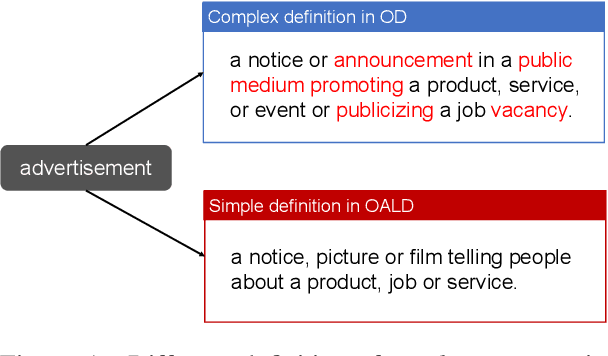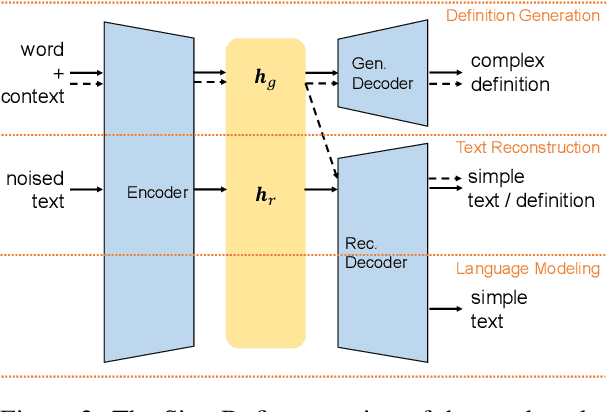Multitasking Framework for Unsupervised Simple Definition Generation
Paper and Code
Mar 24, 2022



The definition generation task can help language learners by providing explanations for unfamiliar words. This task has attracted much attention in recent years. We propose a novel task of Simple Definition Generation (SDG) to help language learners and low literacy readers. A significant challenge of this task is the lack of learner's dictionaries in many languages, and therefore the lack of data for supervised training. We explore this task and propose a multitasking framework SimpDefiner that only requires a standard dictionary with complex definitions and a corpus containing arbitrary simple texts. We disentangle the complexity factors from the text by carefully designing a parameter sharing scheme between two decoders. By jointly training these components, the framework can generate both complex and simple definitions simultaneously. We demonstrate that the framework can generate relevant, simple definitions for the target words through automatic and manual evaluations on English and Chinese datasets. Our method outperforms the baseline model by a 1.77 SARI score on the English dataset, and raises the proportion of the low level (HSK level 1-3) words in Chinese definitions by 3.87%.
 Add to Chrome
Add to Chrome Add to Firefox
Add to Firefox Add to Edge
Add to Edge